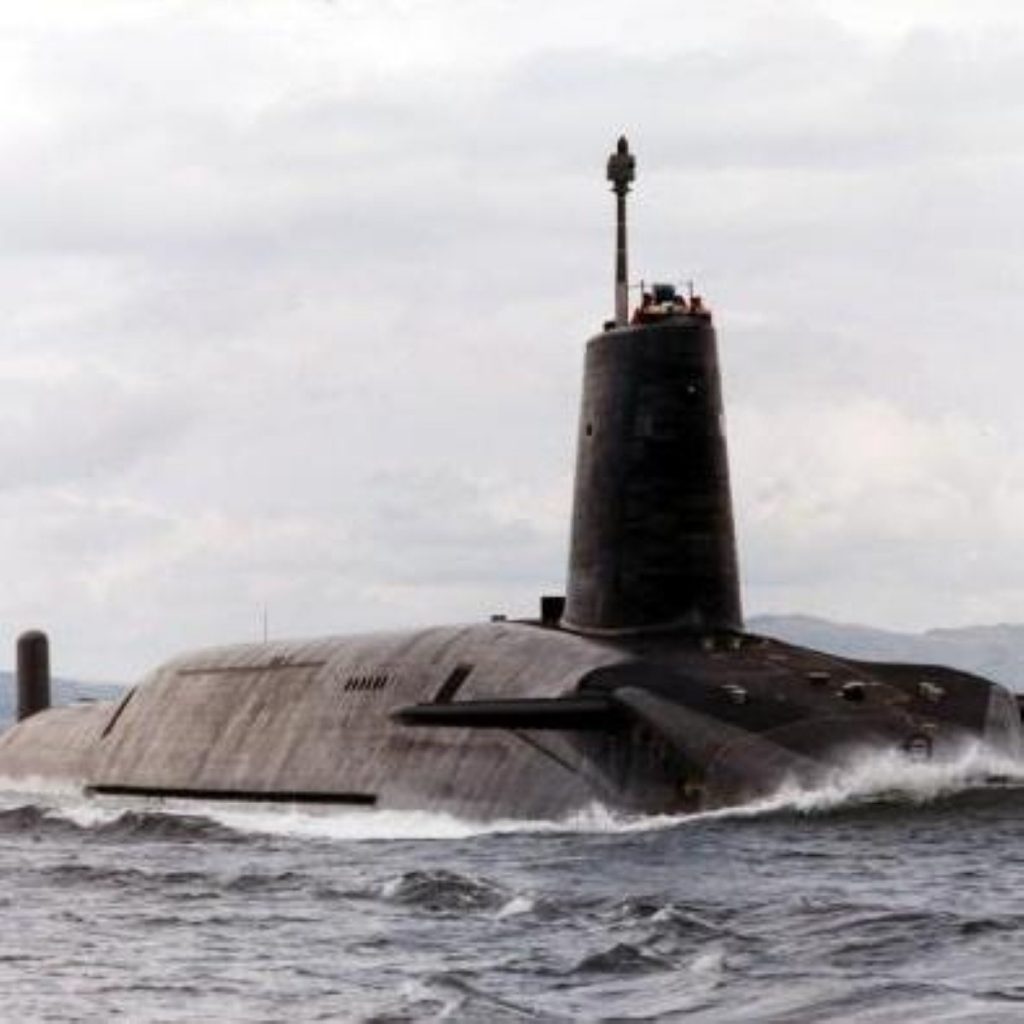Ex-military chief against nuclear deterrent
By Alex Stevenson
A former head of Britain’s military and two senior generals have called for Britain to abandon its nuclear deterrent.
In a letter to the Times newspaper Field Marshal Lord Bramall, alongside General Lord Ramsbotham and General Sir Hugh Beach, argued it will be difficult for the UK to “exert any leadership and influence” on nuclear non-proliferation given its continued commitment to a deterrent.
They dismissed the independent deterrent argument as a “fallacy” because of Britain’s reliance on the US for the provision and servicing of the ballistic missiles used for delivery.


And they argued a “nuclear blackmail” situation would not be resolved with the threat of a retaliatory strike.
“Nuclear weapons have shown themselves to be completely useless as a deterrent to the threats and scale of violence we currently, or are likely to face – particularly international terrorism; and the more you analyse them the more unusable they appear.”
MPs voted to back the Trident decision in March 2007 after lengthy debate in the Commons.
The government would have been defeated without Conservative support and the issue remains a divisive one.
In their letter the senior military figures added that “economic clout” now matters more than the seat at the top table.
“Our independent deterrent has become virtually irrelevant except in the context of domestic politics,” they added.
“Rather than perpetuating Trident, the case is much stronger for funding our Armed Forces with what they need to meet the commitments actually laid before them.
“In the present economic climate it may well prove impossible to afford both.”
The government seeks to encourage a ‘virtuous cycle’ where nuclear non-proliferation and disarmament lead to one another.
It says there is a risk without full disarmament the nuclear weapons states are failing to meet their disarmament obligations.
But it points out the UK has cut its nuclear weapons capability by three-quarters since the end of the cold war and now only has 160 operationally available nuclear warheads.
Last March Gordon Brown said Britain was “ready to play our part in further disarmament”.
A Ministry of Defence spokesperson said: “The UK would only consider using nuclear weapons in self-defence, including the defence of our Nato allies, and even then only in extreme circumstances.
“We remain fully committed to its goal of a safer world in which there is no place for any nuclear weapons, and continues to work hard internationally to achieve that goal.”
“However, the government believes it should take the decisions necessary to ensure our national security, and in the current security environment that includes retention of a minimum nuclear deterrent.”











